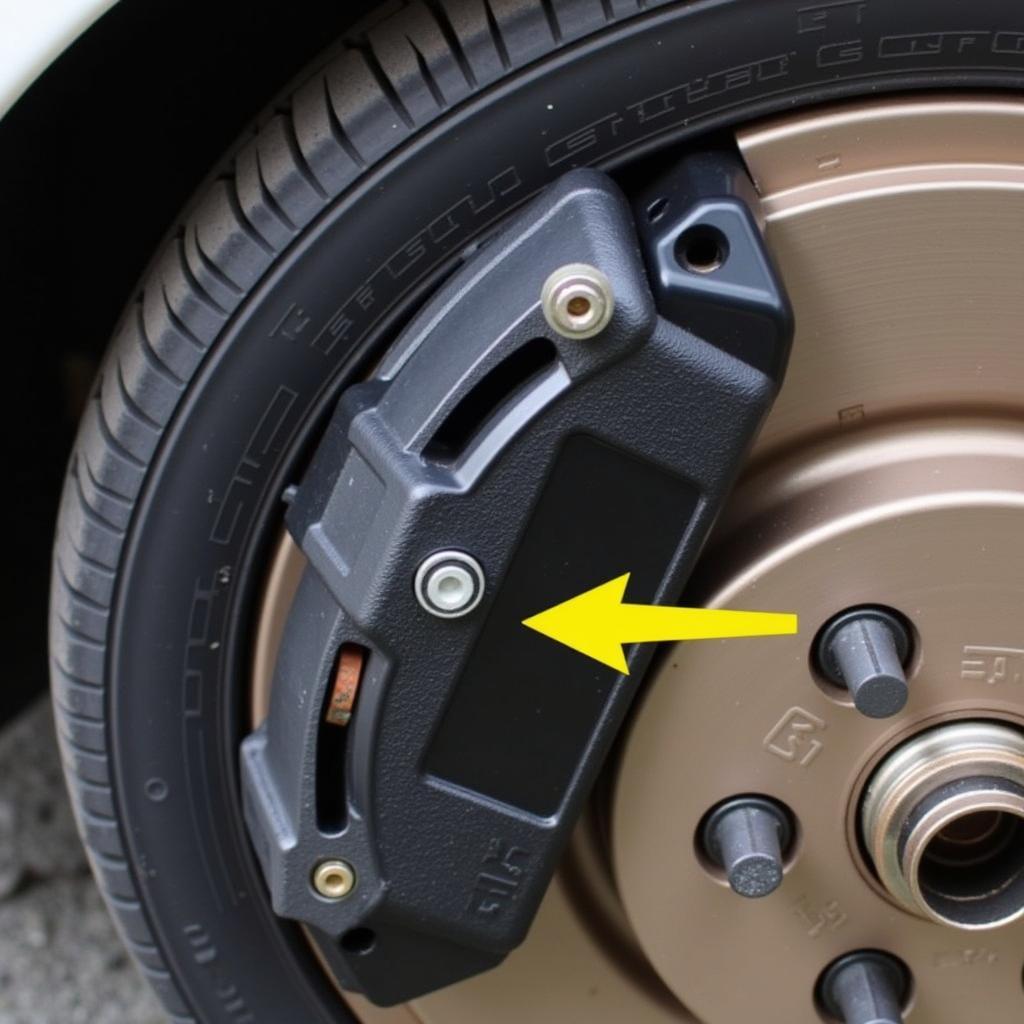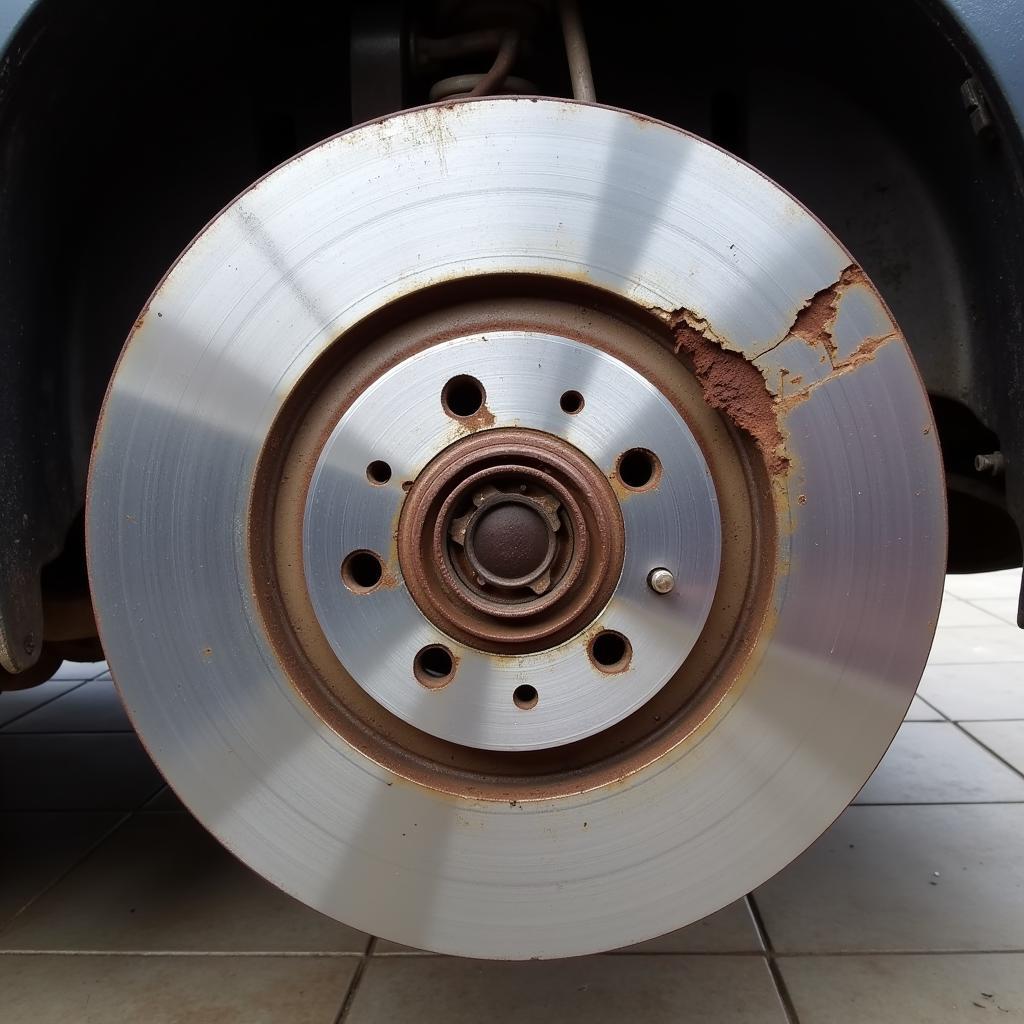Experiencing brake failure while driving is a terrifying scenario. Knowing what to do if your brakes fail without warning can be the difference between a near miss and a serious accident. This article provides a comprehensive guide on how to react and regain control in such a critical situation.
If your brakes suddenly stop working, your first instinct might be to panic. However, staying calm and taking decisive action is crucial. One of the first things you should do is try pumping the brake pedal. This can sometimes build up enough pressure to slow or stop the car, especially if there’s a leak in the brake line. If you’re experiencing issues with your brake system warning light, checking resources like toyota camry how to fix brake sysytem warning light can be helpful in understanding common brake light issues.
Understanding Why Brakes Fail
Several factors can contribute to brake failure. Understanding these can help with prevention and knowing what to do if brakes without warning when driving. Common causes include brake fluid leaks, worn brake pads, and problems with the master cylinder. Regular maintenance and inspections are key to preventing these issues.
Immediate Actions When Brakes Fail
Pumping the Brakes
The first action should be pumping the brake pedal several times. This action can often restore some braking power, especially if the failure is due to a loss of hydraulic pressure.
Downshifting
If pumping the brakes isn’t effective, downshift to a lower gear. This utilizes the engine’s braking power to slow the vehicle down. This is particularly effective on manual transmission vehicles but can also work on automatics with manual shifting modes. If your car has specific brake system warnings like the ESP light, understanding what it means is important, you can find helpful information on seat leon esp warning light.
Using the Emergency Brake
Gradually apply the emergency brake. Do not yank it hard, as this could lock the rear wheels and cause the car to skid. Apply it firmly and steadily to slow the vehicle down.
Steering to Safety
While performing these actions, steer the vehicle away from traffic and towards a safe area. This could be the shoulder of the road, an open field, or a safe escape route.
Honking and Flashing Lights
Use your horn and hazard lights to alert other drivers of your situation. This helps them understand your predicament and allows them to take evasive action if necessary.
Preventive Measures for Brake Failure
Regular Brake Inspections
Regular brake inspections are crucial for preventing brake failure. A mechanic can check the brake pads, rotors, calipers, lines, and fluid levels to ensure they’re in good working order.
Quality Brake Parts
Using high-quality brake parts can significantly extend the life and performance of your braking system. Cheap brake pads wear out faster and may not provide adequate stopping power.
Brake Fluid Checks
Regularly check your brake fluid level. Low brake fluid can indicate a leak or other problem that needs to be addressed. Understanding your car’s specific warning lights is essential, you can find more information on common brake light issues at brake system warning light bmw.
Careful Driving Habits
Avoid aggressive driving habits like hard braking and accelerating. These can put unnecessary stress on your brakes and lead to premature wear.
“Regular maintenance and proactive checks are the best ways to avoid the terrifying experience of brake failure,” advises automotive expert, David Miller, ASE Certified Master Technician. “Don’t wait until you hear that dreaded grinding noise – get your brakes inspected regularly.”
Post-Incident Actions
After the vehicle has come to a complete stop, call for roadside assistance. Do not attempt to drive the vehicle further, as it could be dangerous. Have the vehicle towed to a qualified mechanic for a thorough inspection and repair. For example, if you see a specific warning light like the ABS/VSC light, you can find more information at what does the abs vsc brake warning means. “Addressing the root cause of the brake failure is essential to prevent it from happening again,” says automotive consultant, Sarah Chen, specializing in vehicle diagnostics.
Conclusion
Knowing what to do if your brakes fail without warning is critical for your safety and the safety of others. Remember to stay calm, pump the brakes, downshift, use the emergency brake, steer to safety, and alert other drivers. Regular maintenance and proactive attention to your vehicle’s braking system can greatly reduce the risk of experiencing this dangerous situation. If your car has specific warning lights related to brakes, like the BMW brake pad warning light, you can learn more about them at bmw brake pad warning light symbol. By being prepared and taking the right steps, you can navigate this emergency and minimize the potential for harm.


